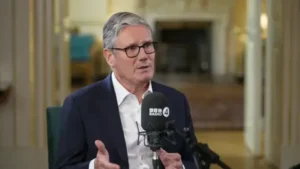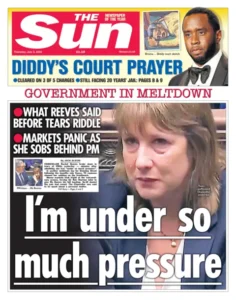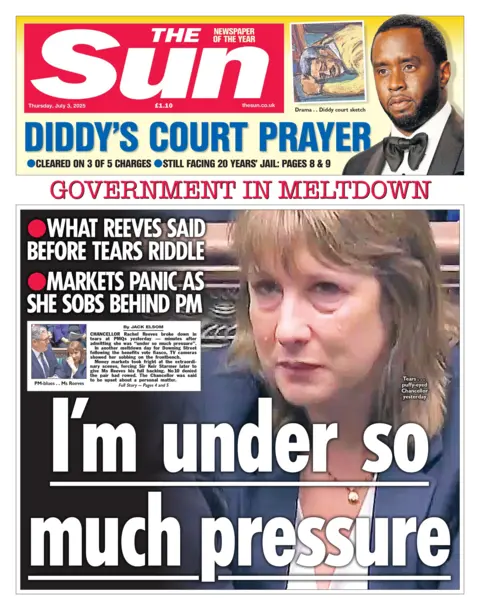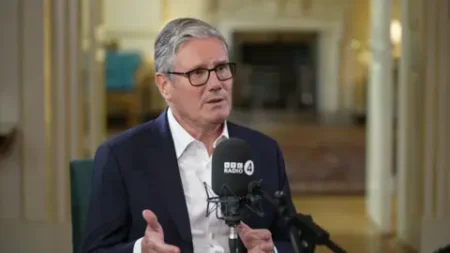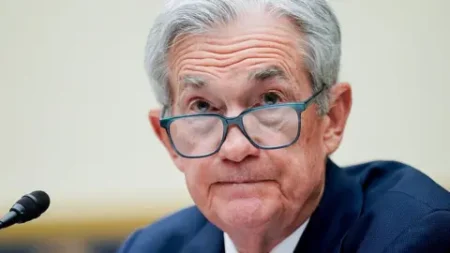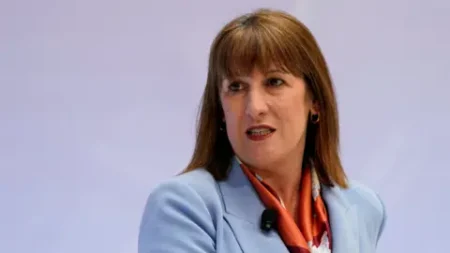The political climate in the United Kingdom has recently faced turbulent waters following the emotional display of Chancellor Rachel Reeves during Prime Minister’s Questions (PMQs), which has drawn a plethora of media attention. The financial markets, responding to Reeves’s tears, have exhibited signs of distress, reflected in the significant decline of the British pound and a notable spike in borrowing costs. This upheaval has posed serious questions about fiscal prudence under the current government, particularly as the Chancellor was seen visibly upset during a critical parliamentary session.
The reactions in the media have varied widely, portraying the chancellor’s emotional moment as both a symbol of personal and governmental strife. The front page of “The Sun” highlights Reeves’s emotional state with the headline “I’m under so much pressure,” which not only pinpoints her distress but also implies a deeper governmental crisis. Following the Chancellor’s display of vulnerability, the paper has claimed that “markets panic as she sobs behind PM,” suggesting a direct correlation between her emotions and economic turmoil.
Several newspapers seized upon the moment, with “The Daily Mail” asking, “What – or who – caused the tears that sparked turmoil in the markets?” This indicates a hunt for accountability within the government, with accusations of infighting between key political figures such as Reeves and Deputy Prime Minister Angela Rayner. The editorial echoed sentiments of derision towards Labour leader Sir Keir Starmer, asserting that he was taking advantage of the situation to bolster his own position, effectively portraying him as a “political vampire.”
The primary concern among financial analysts is the potential fallout regarding the United Kingdom’s fiscal policies. Notably, “The Daily Telegraph” speculated on possible tax increases in response to the chancellor’s emotional display, while Judith Woods raised questions about whether this was a symptom of deeper issues within Reeves’s leadership, noting, “If this was a personal matter, why did she have to sit there?” The article suggested that the Chancellor’s emotional display could trigger broader scrutiny of her effectiveness and viability in office.
Further amplifying the discourse around Reeves is the perspective presented by “The Times,” which reported that Reeves is facing “doubters” after the panic induced by the Prime Minister’s actions, leading to the most considerable jump in Britain’s borrowing costs reminiscent of the days of Liz Truss’s administration. The newspaper posits that the situation may also lead to significant reforms within the National Health Service (NHS), as the government appears intent on restructuring health services to align closer with community needs.
Amid this political drama, accolades were given to Catherine, Princess of Wales, whose own health journey following breast cancer treatments was highlighted by “The Daily Express,” where she was depicted with a “brave face,” which strikes a stark contrast to Reeves’s struggles. In the midst of the national focus on political fallout, the Princess’s story provided a more personal narrative that resonated with many readers.
On another front, “The Guardian” implied that the Chancellor’s emotional episode was a result of miscalculations regarding welfare reforms, describing it as “tears and turmoil.” The article goes on to tie in a legal matter involving the Israeli military, creating a juxtaposition of local political struggles with international issues.
The ongoing saga finds a range of interpretations in the public heart— from empathy towards Reeves amidst her apparent personal turmoil, to skepticism regarding her ability to lead effectively under pressure. As more details emerge, the dichotomy in public opinion appears to deepen, encapsulating the complexity of governance where emotional displays and fiscal responsibility intertwine in an increasingly unstable political atmosphere.
In summary, Rachel Reeves’s tearful moment has catalyzed a widespread examination of fiscal policy in the UK under an intense media microscope, prompting discussions surrounding the government’s capability to govern effectively amidst personal crises. The ensuing political narratives, juxtaposed against personal health stories, exemplify the multifaceted nature of contemporary media discourse surrounding the intersection of public duty and personal vulnerability.


